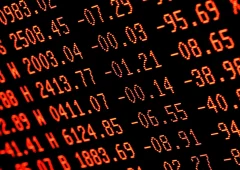Crypto Crash Sparks Massive Inflows to Binance
07.08.2024 14:00 2 min. read Alexander Stefanov
Following the sharp market downturn on August 5, 2024, Binance saw a remarkable influx of $1.2 billion, showcasing significant trader activity amid falling cryptocurrency prices.
CEO Richard Teng highlighted this as one of the year’s strongest days for net inflows, attributing it to investor confidence, based on DefiLlama’s data.
The main sources of these inflows were trading activity, wallet transfers, and fiat deposits for crypto purchases. DeFiLlama’s dashboard revealed that Binance’s net inflows grew by over $2.2 billion, totaling $101.2 billion within a day.
Other exchanges like Bybit, Crypto.com, and OKX also reported increased inflows of $301.4 million, $107.8 million, and $97.7 million, respectively. Conversely, Robinhood faced a $16.9 million outflow due to the suspension of its Blue Ocean ATS market.
K33 Research noted that exchanges handled over 268,830 Bitcoin, valued at around $15 billion, in spot trades on August 5, marking the highest volume since Binance’s fee-free period in 2022-2023.
During the crash, Bitcoin and Ether dropped by 10% and 18% respectively within two hours, leading to the liquidation of over $600 million in leveraged positions.
Despite the decline, Binance Australia emphasized the resilience of digital assets. General Manager Ben Rose pointed out that the market historically recovers from corrections and does not see this dip as a sign of long-term trouble. He anticipates more market volatility due to potential U.S. Federal Reserve interest rate changes and political uncertainties.
-
1
Key Crypto Events to Watch in the Next Months
20.07.2025 22:00 2 min. read -
2
USA Imposes Tariffs on Multiple Countries: How the Crypto Market Could React
08.07.2025 8:30 2 min. read -
3
UAE Regulators Dismiss Toncoin Residency Rumors
07.07.2025 11:12 2 min. read -
4
Ripple Selects BNY Mellon as Custodian for RLUSD Stablecoin Reserves
09.07.2025 15:28 2 min. read -
5
Majority of U.S. Crypto Investors Back Trump’s Crypto Policy, Survey Finds
05.07.2025 18:09 2 min. read
Why Most Americans Still Avoid Crypto Despite Growing Adoption
Cryptocurrency ownership in the U.S. has grown steadily over the past few years, but it remains far from widespread.
Two Upcoming Decisions Could Shake Crypto Markets This Week
The final days of July could bring critical developments that reshape investor sentiment and influence the next leg of the crypto market’s trend.
Winklevoss Slams JPMorgan for Blocking Gemini’s Banking Access
Tyler Winklevoss, co-founder of crypto exchange Gemini, has accused JPMorgan of retaliating against the platform by freezing its effort to restore banking services.
Robert Kiyosaki Warns: ETFs Aren’t The Real Thing
Renowned author and financial educator Robert Kiyosaki has issued a word of caution to everyday investors relying too heavily on exchange-traded funds (ETFs).
-
1
Key Crypto Events to Watch in the Next Months
20.07.2025 22:00 2 min. read -
2
USA Imposes Tariffs on Multiple Countries: How the Crypto Market Could React
08.07.2025 8:30 2 min. read -
3
UAE Regulators Dismiss Toncoin Residency Rumors
07.07.2025 11:12 2 min. read -
4
Ripple Selects BNY Mellon as Custodian for RLUSD Stablecoin Reserves
09.07.2025 15:28 2 min. read -
5
Majority of U.S. Crypto Investors Back Trump’s Crypto Policy, Survey Finds
05.07.2025 18:09 2 min. read


